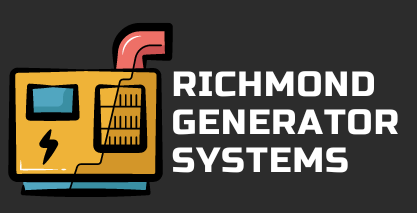
Whole House Generators in Ginter Park VA
A whole house generator is a device designed to supply electricity to your entire home during a power outage. These generators ensure that essential appliances and systems continue to operate, providing peace of mind when the grid goes down. There are primarily two types of whole house generators: standby and portable.
Standby generators are permanently installed outside your home and are connected directly to your home's electrical system. They automatically start up when there is a power outage and provide continuous power until the grid is restored. Portable generators, on the other hand, are not fixed in place and need to be manually connected to your home’s electrical system when needed. While they offer flexibility, they require manual operation and have limited capacity compared to standby models.
What We Offer
At our company, we provide a comprehensive range of
whole house generator in Ginter Park, VA solutions tailored to meet the needs of residents. Our services include professional consultation to help you choose the right generator, high-quality installation by certified technicians, and ongoing maintenance to ensure your generator operates reliably when you need it most. We also offer emergency repair services to address any issues that may arise.
- Residential Generators
- Commercial Generators
- Portable Generators
- Electric Generators
- Propane Generators
- Solar Generators
- Generator Repairs
- Generator Maintenance
- Generator Parts

We will get back to you as soon as possible.
Please try again later.
How Do They Work?
Whole house generators operate through an automatic transfer switch that detects power outages and activates the generator. Once the generator is running, it supplies power to your home by either connecting directly to your electrical system or through a designated circuit. This seamless switch ensures that there is no interruption in power supply, keeping your home functional and safe.
Fuel Sources
Whole house generators can run on several types of fuel, each with its own advantages. Common fuel sources include:
- Natural Gas: Convenient and usually cost-effective, as it is supplied continuously through a pipeline.
- Propane: Offers flexibility and is a good option if natural gas is not available. Propane tanks need to be refilled periodically.
- Diesel: Known for its durability and reliability, diesel generators are suitable for larger homes or commercial applications. However, they require more maintenance and have higher fuel costs.
- Gasoline: Portable generators often use gasoline, but it is less common for whole house setups due to storage and safety concerns.
Installation Steps, Testing, and Commissioning
Installing a whole house generator involves several critical steps. First, a site assessment is conducted to determine the optimal location for the generator, ensuring it meets safety and operational standards. Next, the generator is installed and connected to your home’s electrical system. This process involves wiring, connecting to the fuel source, and ensuring proper ventilation.
Once installed, the generator undergoes rigorous testing to ensure it functions correctly and integrates seamlessly with your home’s power system. This testing phase is crucial to confirm that the generator will perform as expected during an outage. After testing, the generator is commissioned, and you will receive instructions on how to operate and maintain it.
Regular Maintenance Tasks
To keep your whole house generator in top condition, regular maintenance is essential. This includes:
- Routine Inspections: Checking for any signs of wear and tear or damage.
- Oil Changes: Replacing the oil at intervals recommended by the manufacturer.
- Filter Replacements: Changing air and fuel filters to ensure optimal performance.
- Battery Checks: Ensuring the battery is charged and functioning correctly.
- Exercise Runs: Running the generator periodically to keep the engine in good working order.
Regular maintenance helps prevent unexpected breakdowns and extends the lifespan of your generator.
Diagnosing and Addressing Common Problems
Even with regular maintenance, issues can arise with whole house generators. Common problems include:
- Failure to Start: This could be due to a dead battery, fuel issues, or electrical faults.
- Overheating: Often caused by inadequate ventilation or low coolant levels.
- Power Fluctuations: Might result from faulty wiring or load issues.
Diagnosing these problems typically involves checking the generator’s system for error codes, inspecting fuel levels, and ensuring all connections are secure. Professional technicians can provide accurate diagnoses and repairs to restore your generator’s functionality.
Considerations When Choosing a Whole House Generator
Choosing the right whole house generator requires careful consideration of several factors:
- Power Requirements: Determine the wattage needed to support your home’s essential systems and appliances.
- Fuel Type: Select a fuel source that fits your needs and availability.
- Installation Space: Ensure there is adequate space for installation and ventilation.
- Budget: Consider both the initial cost and long-term operating expenses.
- Brand and Warranty: Choose a reputable brand with a good warranty to ensure reliability and support.
Importance of Having a Reliable Backup Power Source
A reliable backup power source is crucial for maintaining your home’s safety and comfort during power outages. Whole house generators ensure that you are never left without power, which is essential for operating medical equipment, keeping your home secure, and maintaining communication. In Ginter Park, where weather events can cause frequent power interruptions, having a dependable generator can provide invaluable peace of mind.
Common FAQs
Q: How often should I test my whole house generator?
A: It’s recommended to test your generator monthly to ensure it is operational and ready for use in case of an emergency.
Q: How long can a whole house generator run continuously?
A: The runtime depends on the fuel type and capacity of the generator. Most standby generators can run for several days on a full tank of fuel.
Q: Can I install a whole house generator myself?
A: Installation should be done by a professional to ensure safety and compliance with local codes and regulations.
Q: What maintenance is required?
A: Regular maintenance includes checking and changing oil, replacing filters, and ensuring the battery and fuel levels are adequate.
If you’re considering a whole house generator for your home in Ginter Park, VA, or need assistance with installation, maintenance, or repairs, contact us today. Our team of experts is here to provide you with the best solutions and ensure your home remains powered and secure during any outage. Reach out to us to schedule a consultation or learn more about our services.
Let's Connect!
Looking for reliable power solutions? Look no further than us! Our expert team is here to help you understand how whole house generators work and why they're essential. Don't get caught in the dark! Check out our buyer's guide and discover the reasons for the loss of power. Contact us today for a consultation!